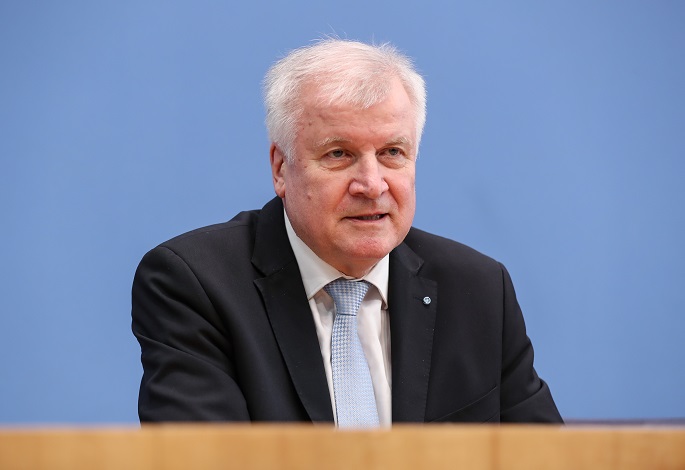German interior minister loses popularity over asylum policy: poll
Published : 29 Jun 2018, 22:40
The popularity of German Interior Minister and Christian Social Union (CSU) leader Horst Seehofer has suffered in his escalating cabinet conflict over asylum policy with Chancellor Angela Merkel (CDU), a "Politbarometer" poll published on Friday by the public broadcaster "ZDF" showed.
Seehofer's rating in the poll fell from plus 0.3 to minus 0.3 between June and July, signaling the disapproval among respondents for the politician. During the same period, the rating of Bavarian governor Markus Soeder (CSU), a close ally of Seehofer, slumped from a rating of 0.1 to minus 0.5.
Soeder hereby received the worst rating of any CSU politician recorded during the past ten years. By contrast, Merkel only witnessed a slight loss of popularity with a rating of plus 0.9. The scale of regular "Politbarometer" surveys extends from a maximum rating of plus five to a minimum rating of minus five.
Although the two CSU politicians hence appeared to be the principal victims of the government row which they unleashed themselves, all parties represented in the ruling "grand coalition" lost ground in the poll.
When questioned whom they would vote for if federal elections were held again, 32 percent of respondents voiced support for the joint Christian Democratic Union (CDU)/CSU electoral alliance (minus 1 percentage point), compared to 18 percent for the German Social Democrats (minus two percentage points). The Alternative for Germany (AfD) and Greens (Gruene) both rose by one percentage point in the poll to a voter support level of 14 percent respectively.
An overwhelming majority of respondents further indicated in the poll that they were in favor of a European solution to asylum policy. Nevertheless, 58 percent still approved of controversial measures proposed by the CSU to refuse entry to asylum seekers at the German border if they have already been registered in another Schengen area country.
Speaking to Xinhua on Friday, Michael Broening, policy expert at the think-tank Friedrich Ebert Stiftung (FES), argued that the seemingly paradox findings showcased that voters were keen to see a pragmatic solution to asylum policy challenges whilst preventing a collapse of Merkel's fourth governing cabinet.
"Voters want to see a reasonable solution which limits immigration and corrects the impression of a loss of control in the area. At the same time, however, voters are also concerned about the governability of the country", Broening said.
According to the FES policy expert, the only beneficiary of a "total escalation" in which Germany's coalition government was dissolved again would be the right-wing populist AfD. As a consequence, none of the supporters of the CDU, CSU or SPD could seriously consider such an outcome to be desirable.
Interior Minister Seehofer has threatened to implement his "migration master plan" without the consent of Chancellor Merkel, a step which would constitute an unprecedented display of show of cabinet disobedience in Germany. In turn, the chancellor warned that she would sack Seehofer if he defied her authority, potentially triggering the unravelling of the electoral alliance traditionally formed by the CDU and CSU.
Merkel attended a two-day EU summit in Brussels on Friday where she sought to resolve the escalating cabinet conflict by finding European solution on asylum policy. Following discussions which lasted throughout entire Thursday night, the chancellor announced that she was able to secure backing for a preliminary agreement on the framework of new joint policy regime.


